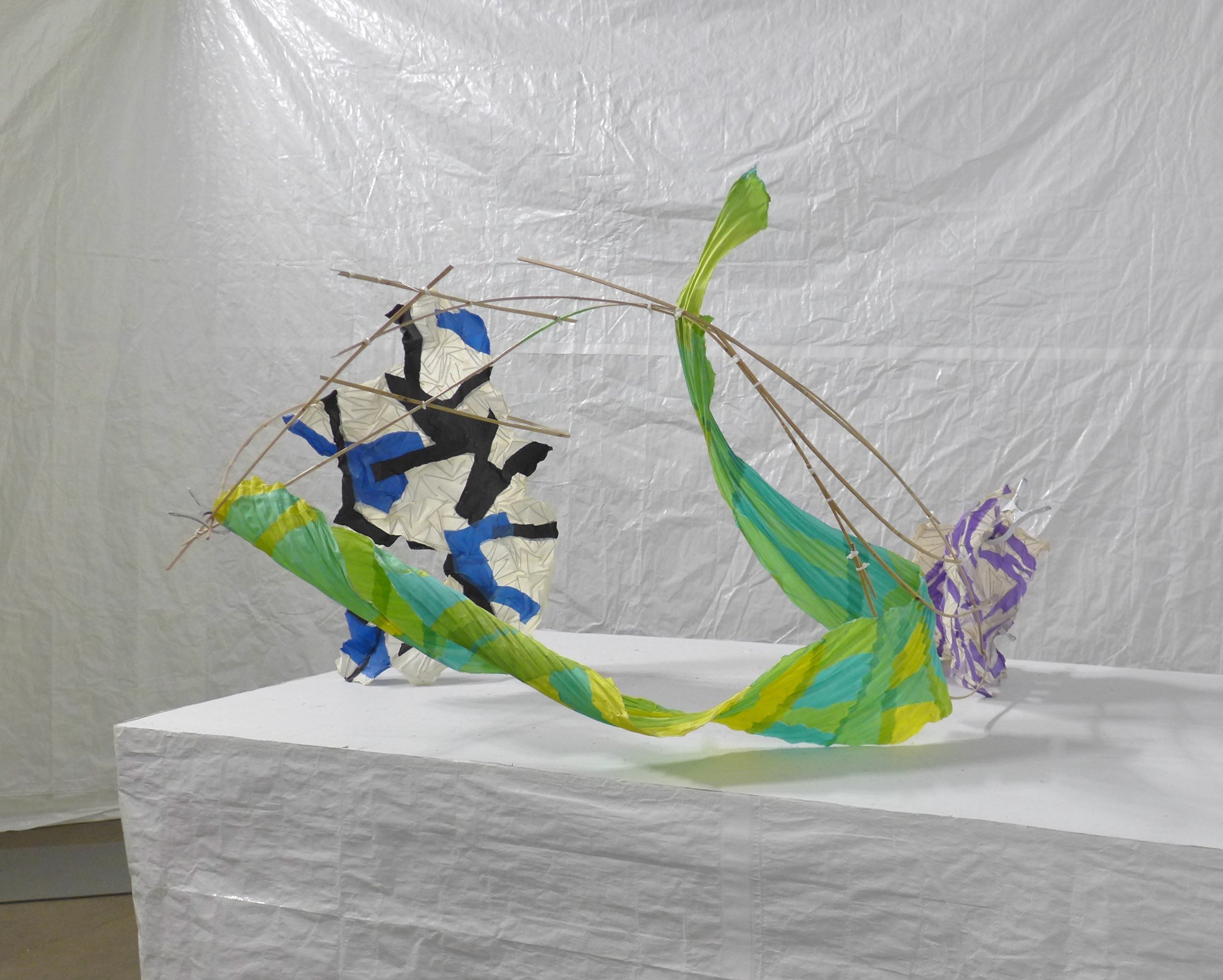line drawings out of abaca paper straps
We wove straps of overbeaten abaca and then cut the weavings into 2” x 3” pieces for the 2019 Swatch Swap book.
bamboo ribs, abaca skin
We have made several of these bamboo and abaca structures and we’re still learning.
how we work is discontinuous
Our working method is discontinuous
We make paper objects that we find visually alluring, but seldom think of them as sculpture.
making puffers
Putting a patch of low shrinkage cotton fiber onto a high shrinkage ground like abaca produces a wonderful puffing effect.
heftier coils - part 4
The next step for our coil evolution - making them heftier and more resilient to studio and composing wear and tear.
these coils change planes - part 3
Up to now, the coils have stayed on one plane, fabricated and dried on a flat table top; however, when we used them in compositions, we liked that when they were under load they lost their flatness and twisted into 3 dimensions.
coils racing around flashing - part 2
Carving grooves in pink insulation foam board to cast coil designs seems clever, but impractical.
coils in the groove - part 1
We use a lot of hidden wire, velcro, tape and nails to attach our paper objects to each other, but we don't like hiding things; we prefer making connectors part of the work.
LandesSullivan at gmail.com







